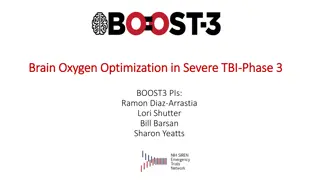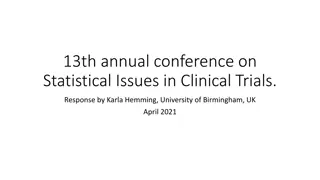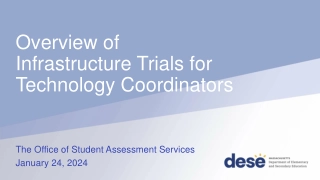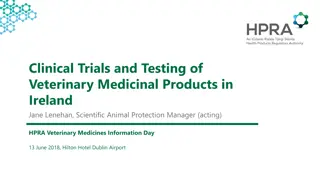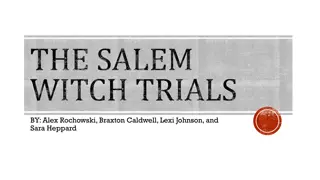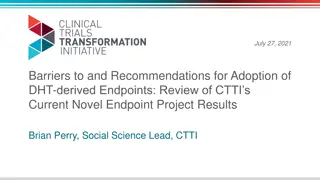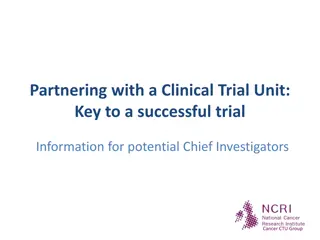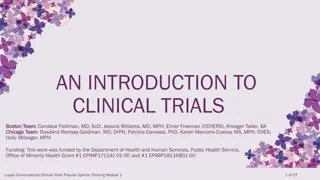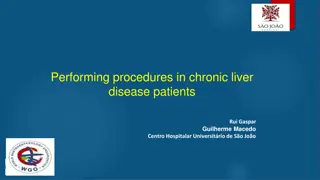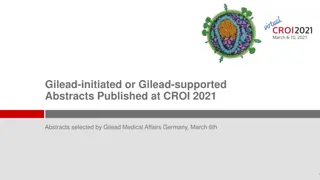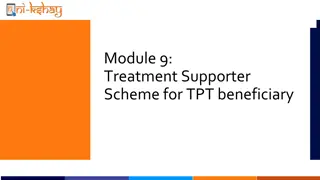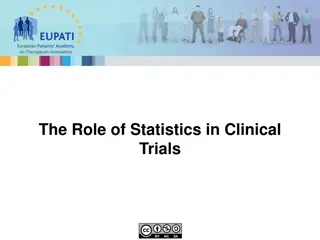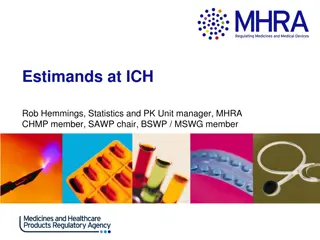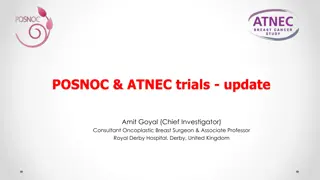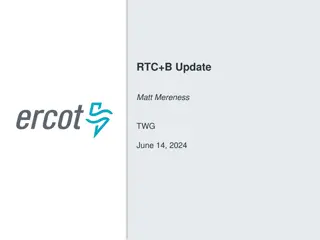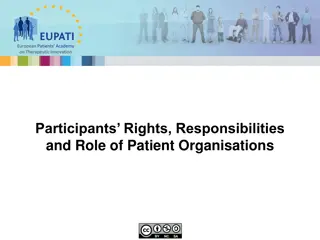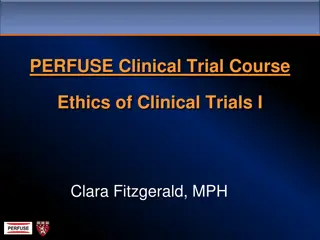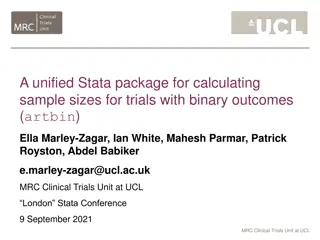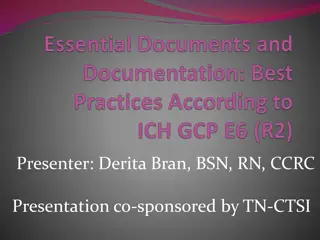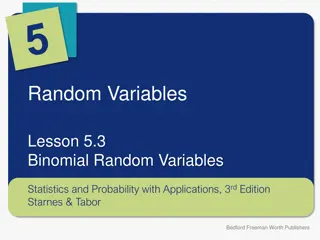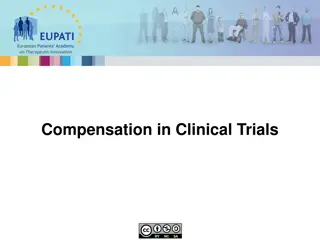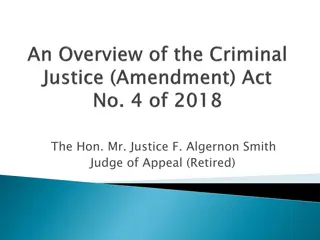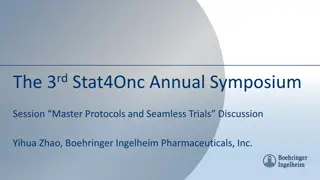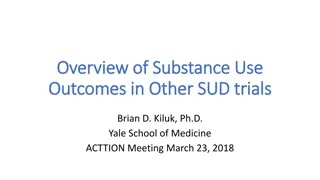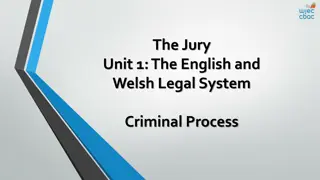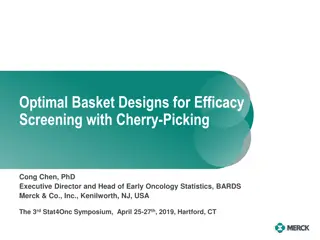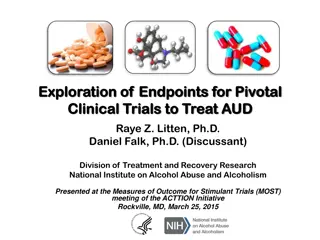Advancements in Cholangiocarcinoma Treatment Trials
Recent clinical trials such as TOPAZ-1, KEYNOTE-966, ClarIDHy, and FIGHT-202 have shown promising results in the treatment of cholangiocarcinoma. Trials with immunotherapy and targeted therapy have demonstrated improved overall survival rates, progression-free survival, and objective response rates in patients with advanced or metastatic biliary tract cancer. These findings have paved the way for new treatment standards and FDA approvals.
Download Presentation

Please find below an Image/Link to download the presentation.
The content on the website is provided AS IS for your information and personal use only. It may not be sold, licensed, or shared on other websites without obtaining consent from the author. Download presentation by click this link. If you encounter any issues during the download, it is possible that the publisher has removed the file from their server.
E N D
Presentation Transcript
Estimated cases of cholangiocarcinoma compared with other cancers Breast 290,000 Prostate 288,000 Lung 240,000 Colon and Rectum 150,000 Pancreas 60,000 Cholangiocarcinoma 8,000 Howlader N, et al. SEER Cancer Statistics Review. 2017. American Cancer Society. Cancer Facts & Figures. 2023.
TOPAZ-1 Trial Phase 3 trial, N= 685, double-blind, placebo-controlled Patients with untreated unresectable or metastatic biliary tract cancer or with recurrent disease Design Regimen Durvalumab + gemcitabine + cisplatin vs Placebo + gemcitabine + cisplatin Median Overall Survival 12.8 months vs 11.5 months P=0.021 24-month Overall Survival 24.9% vs 10.4% Objective Response Rate 26.7% vs 18.7% Results Grade 3-4 toxicity: 75.7% vs 77.8% Triple combination therapy is the new standard of care, leading to durvalumab becoming FDA approved. Conclusion Oh DY, et al. NEJM Evid. 2022;1(8):1-11.
KEYNOTE-966 Trial Phase 3 trial, N= 1069, double-blind, placebo-controlled Patients with untreated, unresectable, locally advanced or metastatic biliary tract cancer Design Regimen Pembrolizumab + gemcitabine + cisplatin vs Placebo + gemcitabine + cisplatin Median Overall Survival 12.7 months vs 10.9 months P=0.0034 24-month Overall Survival 25% vs 18% Objective Response Rate 29% vs 29% Results Duration: 9.7 months vs 6.9 months Grade 3-4 toxicity: 79% vs 75% This trial confirmed the benefit of chemo-immunotherapy in biliary tract cancers with improved overall survival. Conclusion Kelley RK, et al. Lancet. 2023;401(10391):1853-1865.
ClarIDHy Trial Phase 3 trial, N= 185, double-blind, placebo-controlled Patients with advanced, IDH1-mutant cholangiocarcinoma, progressed on at least 1 previous therapies Design Regimen Ivosidenib vs Placebo Median Progression Free Survival 2.7 months vs 1.4months P<0.0001 6-month Progression Free Survival 32% vs 0% 12-month Progression Free Survival 22% vs 0% Results This trial confirmed that ivosidenib significantly improved progression-free survival, with favorable safety profile for patients with IDH1-mutatant cholangiocarcinoma who progressed on standard chemotherapy Conclusion Abou-Alfa G, et al. Lancet Oncol. 2020;21(6):796-807.
FIGHT-202 Trial FOENIX-CCA2 Trial Phase 2 trial, N= 107, open-label, single-arm Patients with advanced, FGFR2 fusions or rearrangements cholangiocarcinoma, progressed on at least 1 previous therapies Phase 2 trial, N= 103, open-label, single-arm Patients with advanced, FGFR2 fusions or rearrangements cholangiocarcinoma, progressed on at least 1 previous therapy Design Regimen Pemigatinib Futibatinib Overall Response Rate 35.5% Objective Response Rate 42% Results These trials support the therapeutic benefit of both agents for patients with cholangiocarcinoma and FGFR2 fusions or rearrangements who have progressed on at least 1 previous therapy Conclusion Abou-Alfa GK, et al. Lancet. 2020;21(5):671-684. Goyal L, et al. N Engl J Med. 2023;388(3):228-239.




